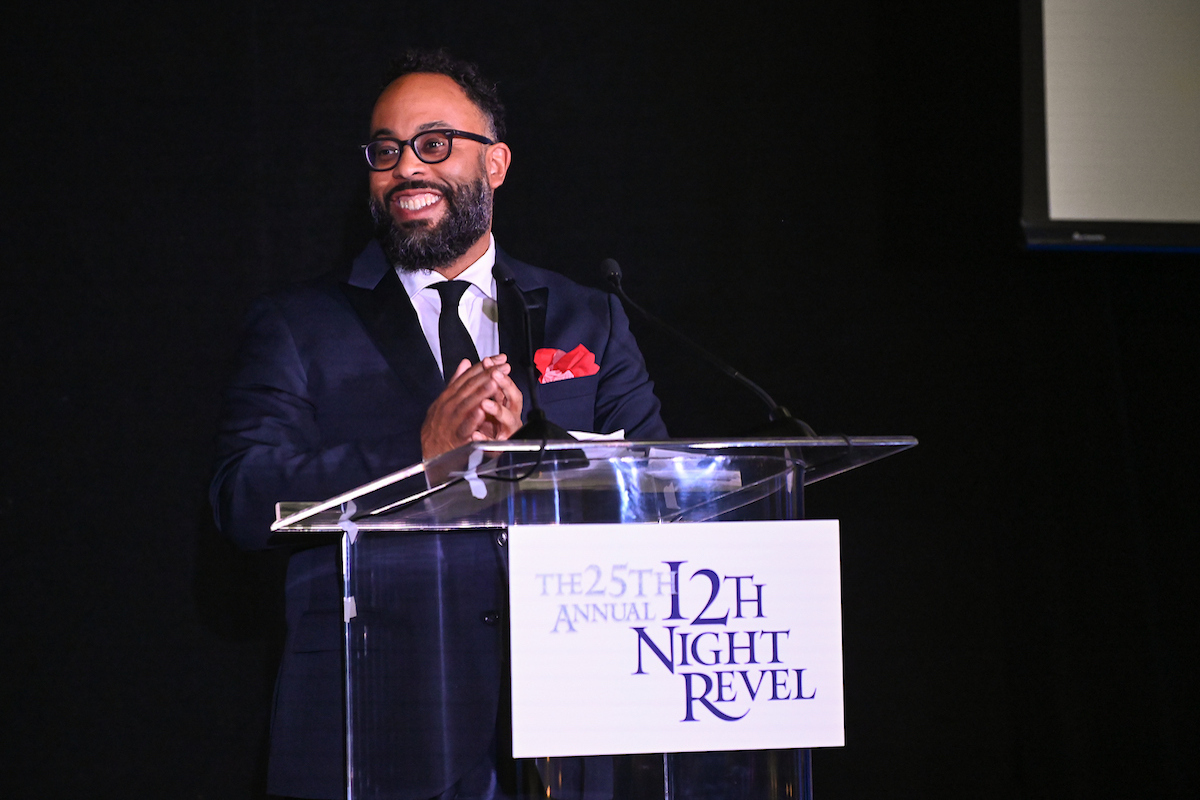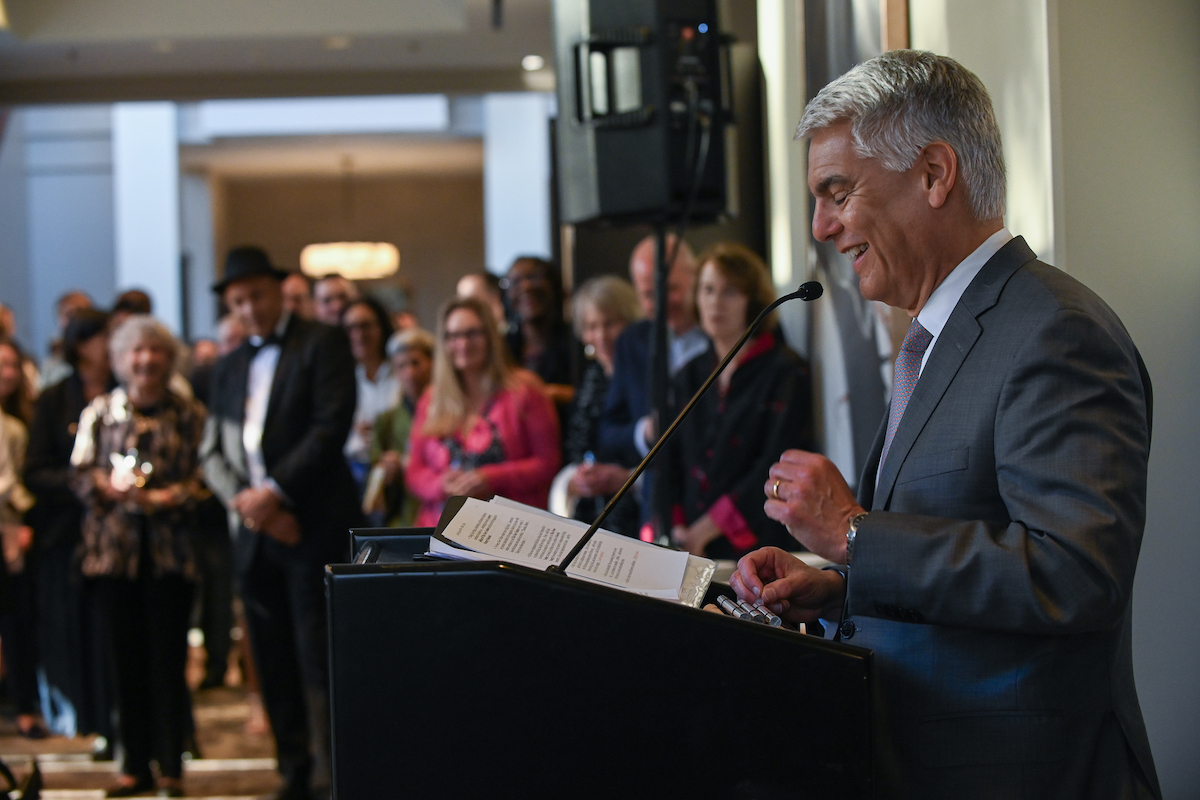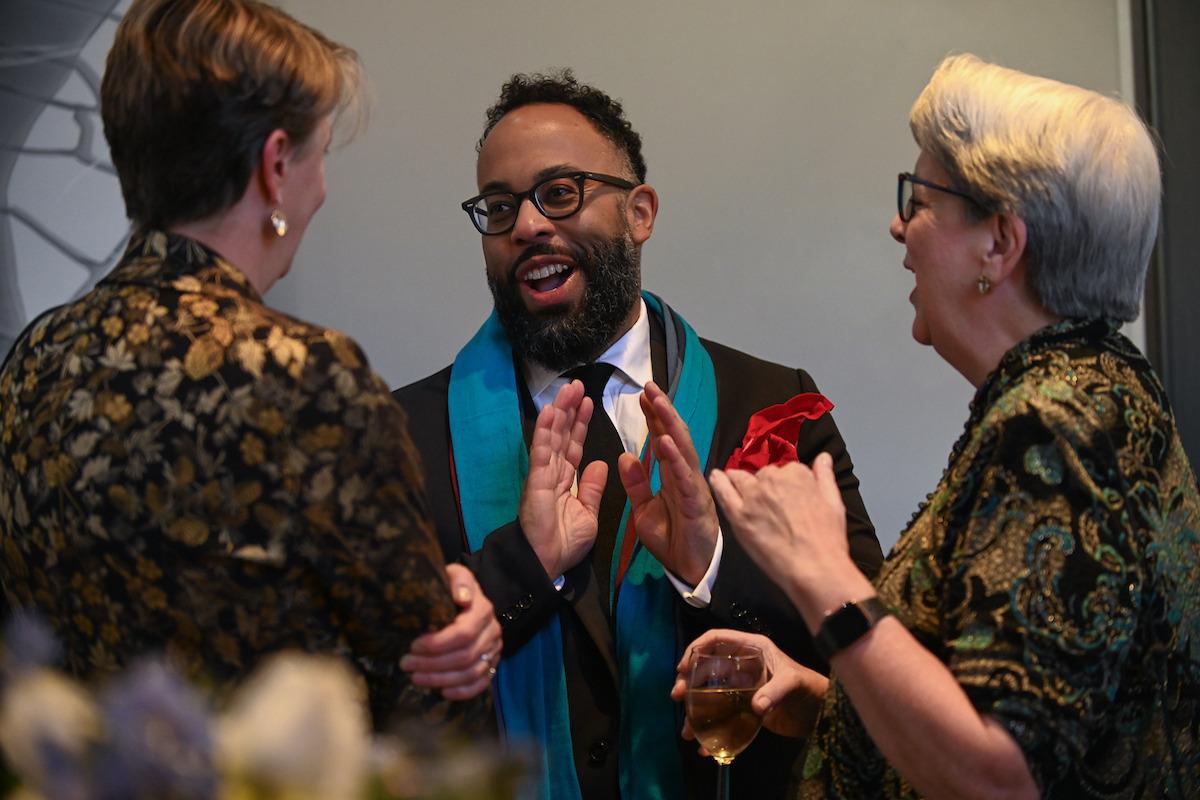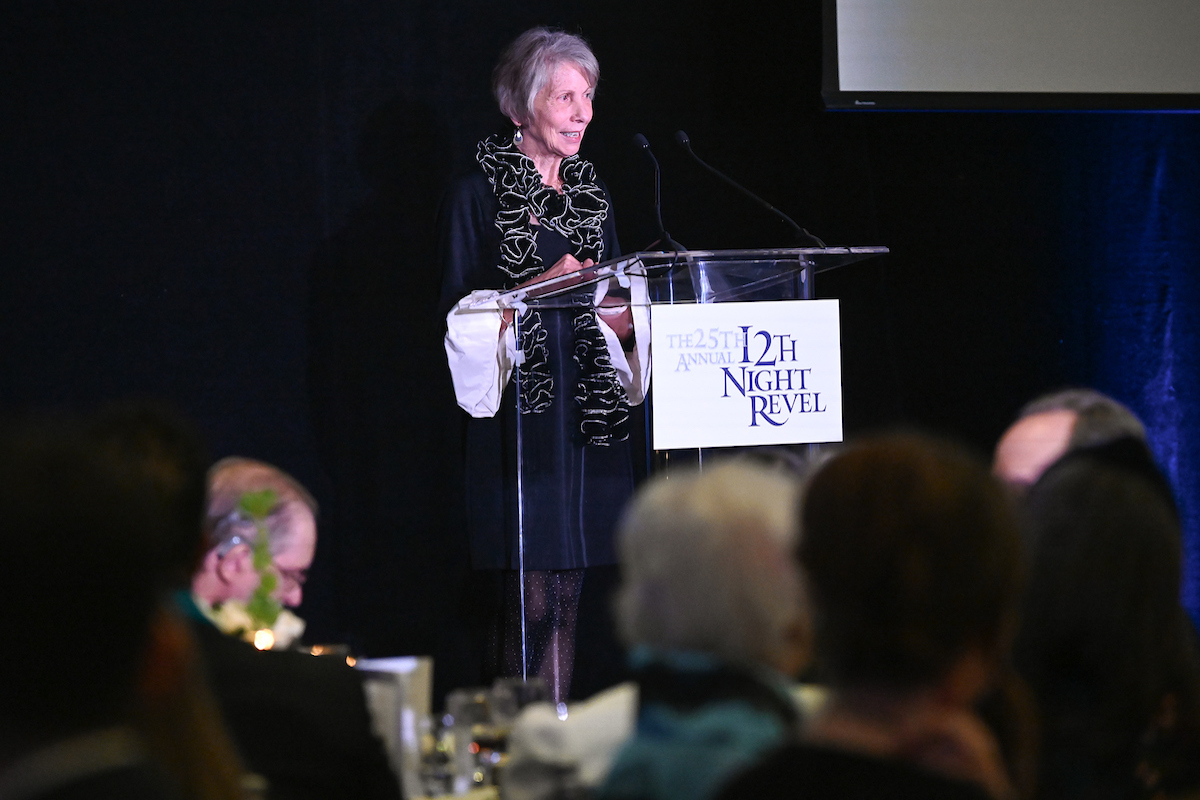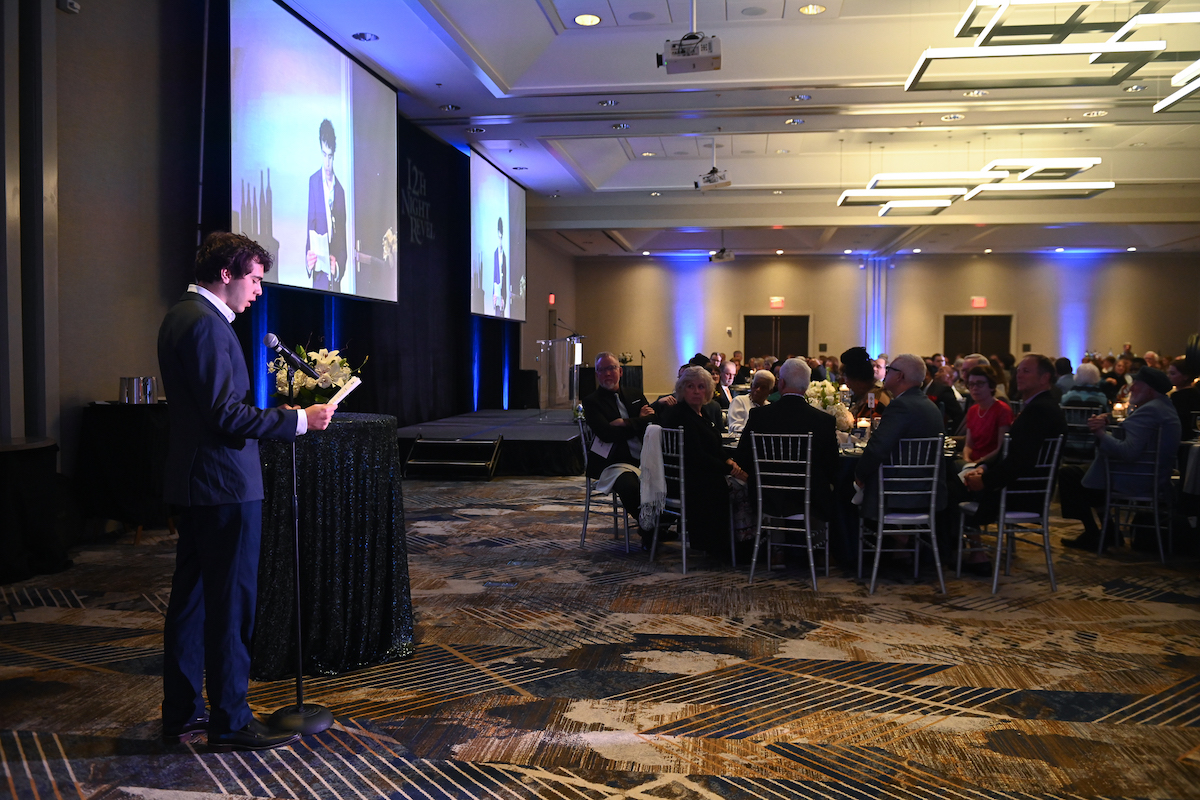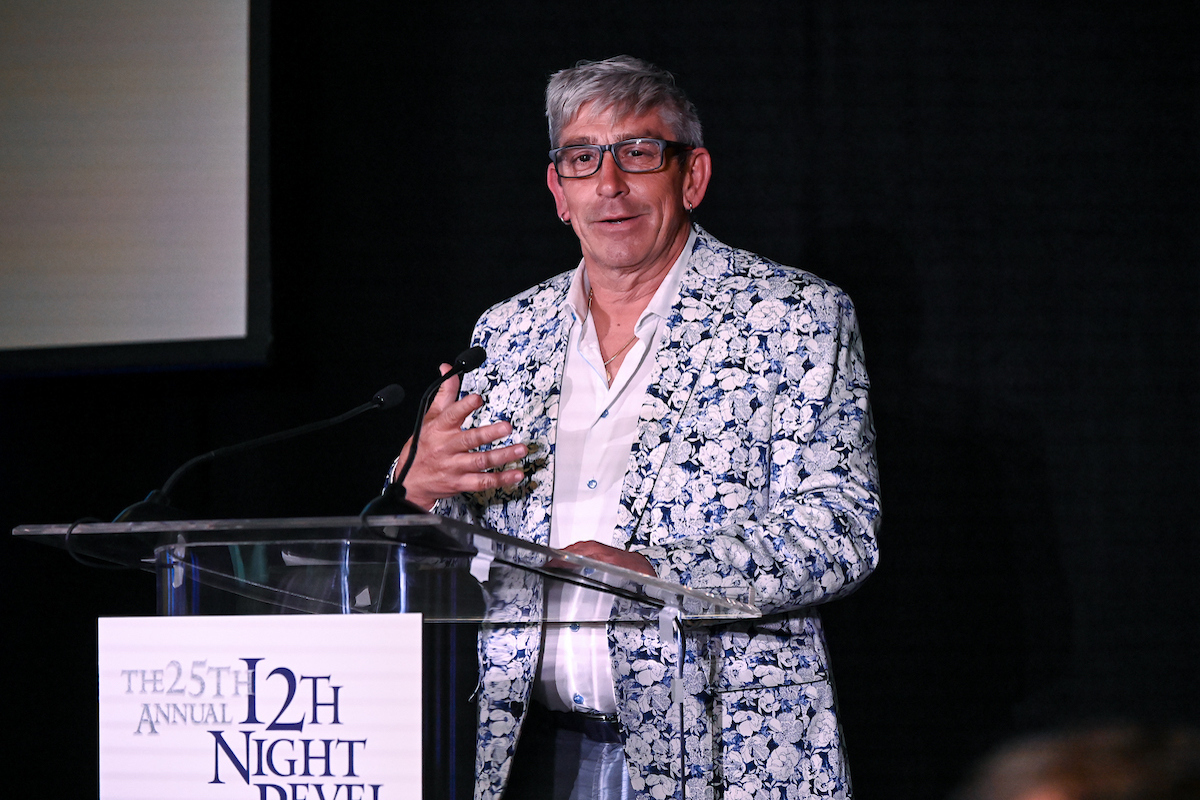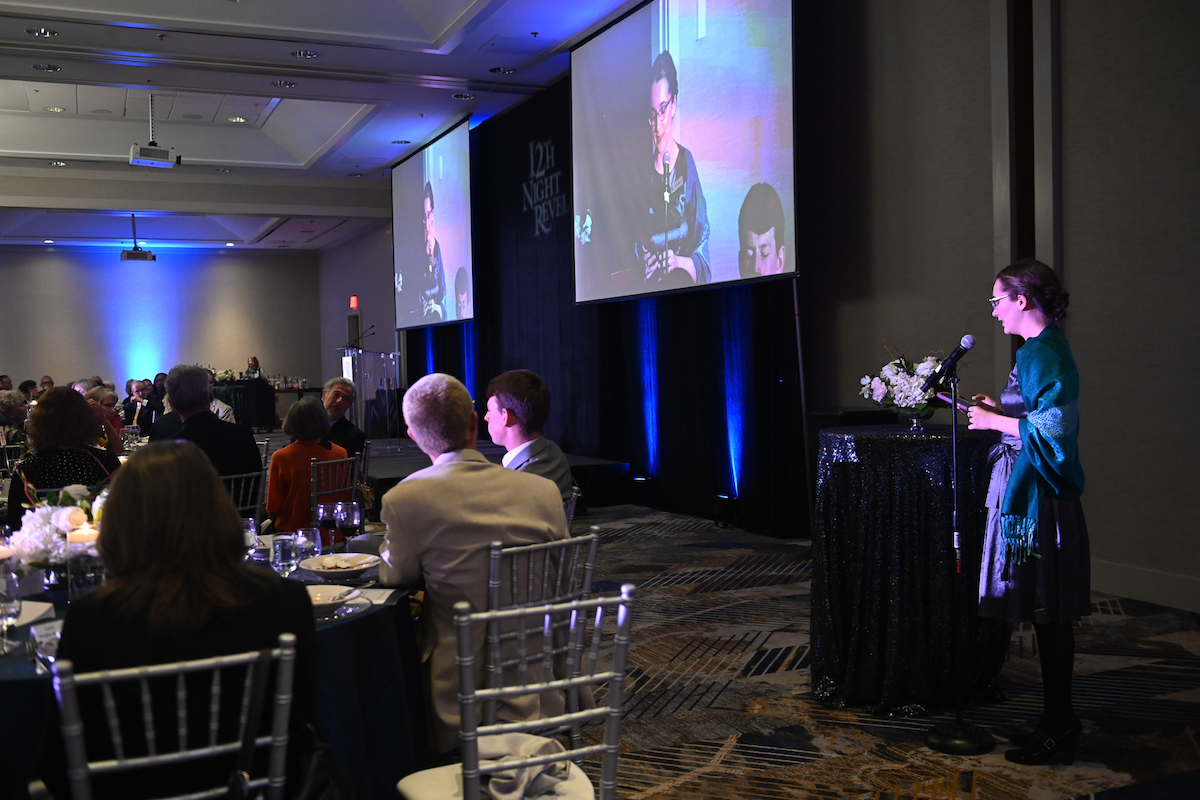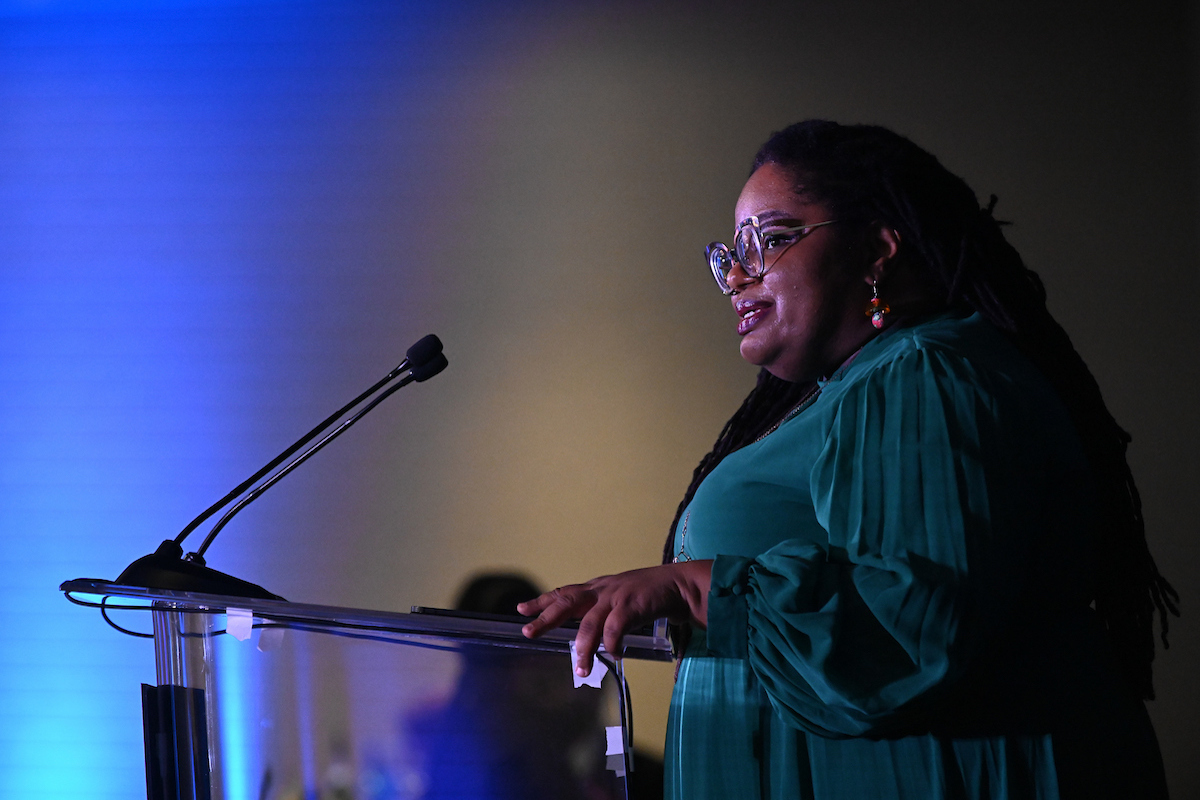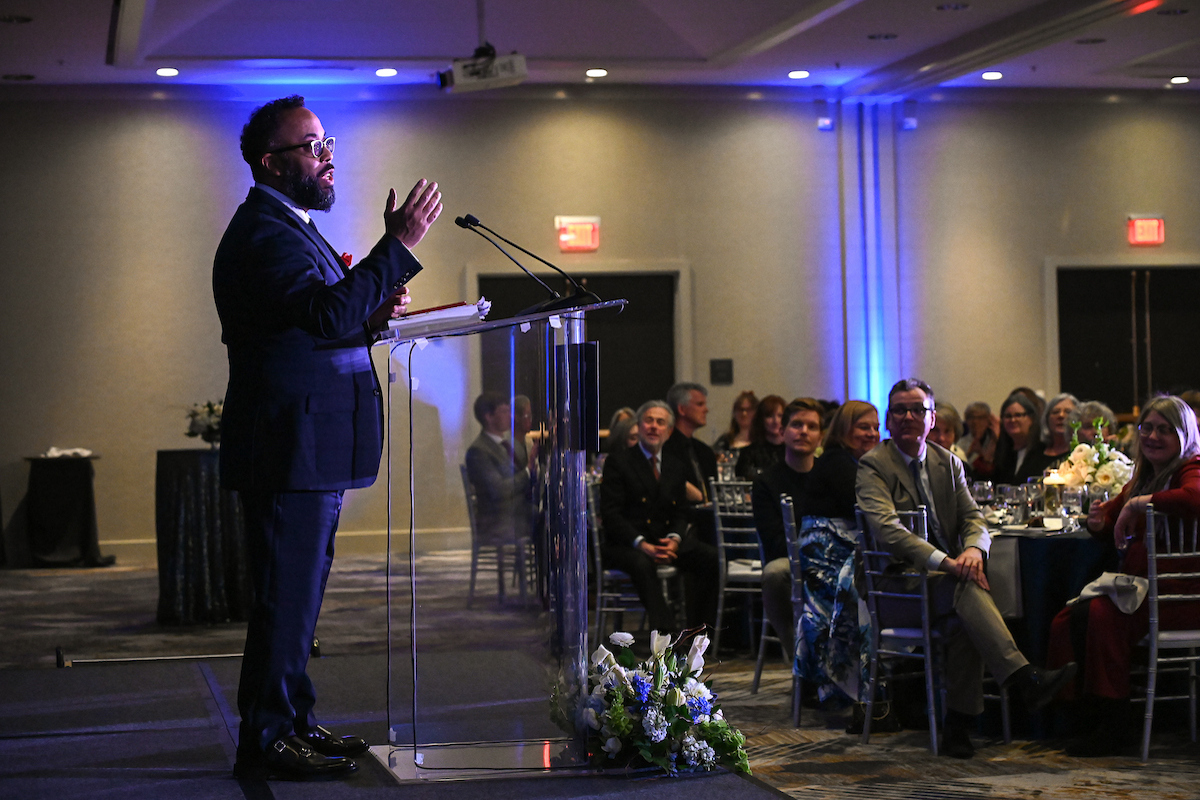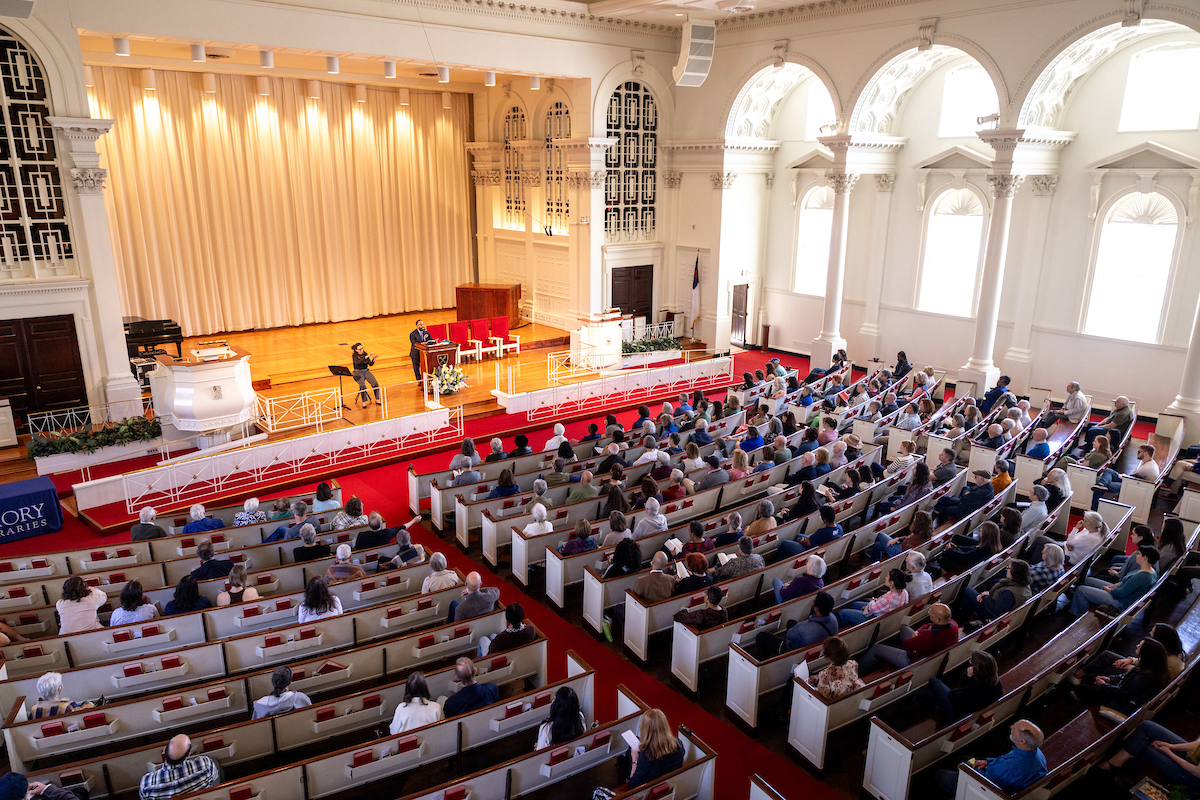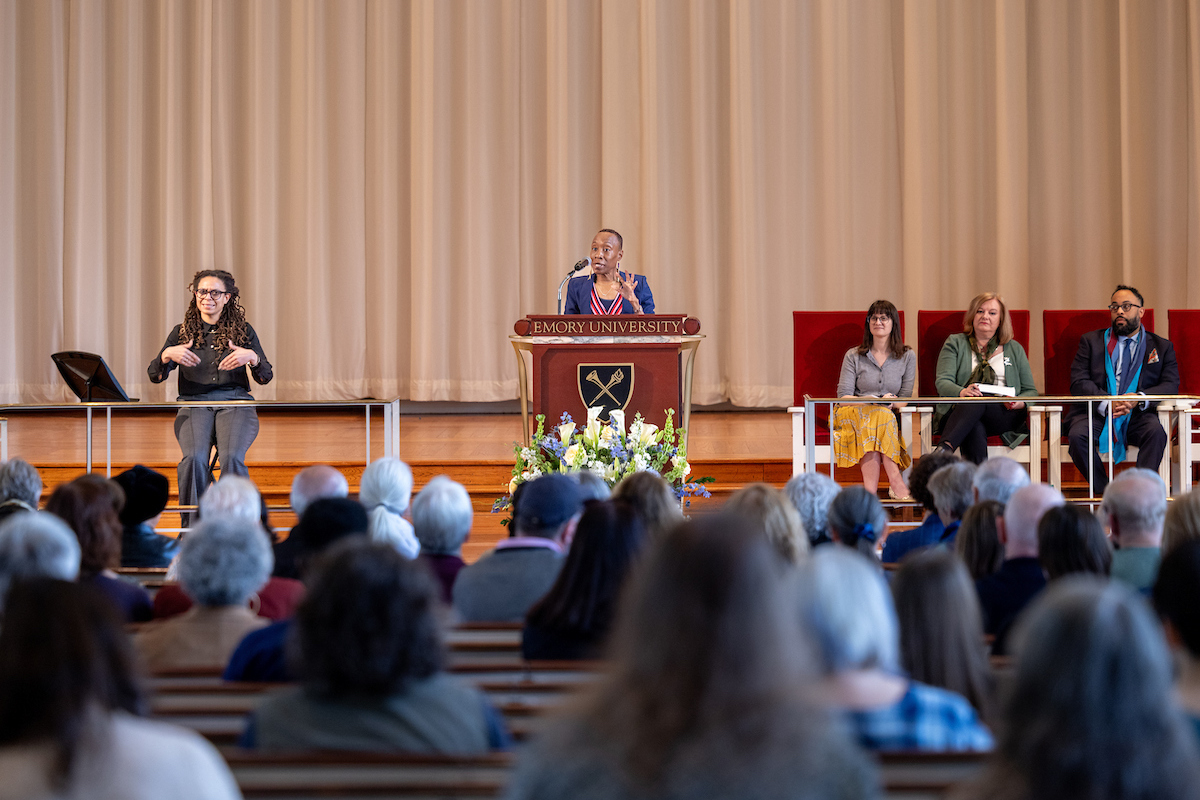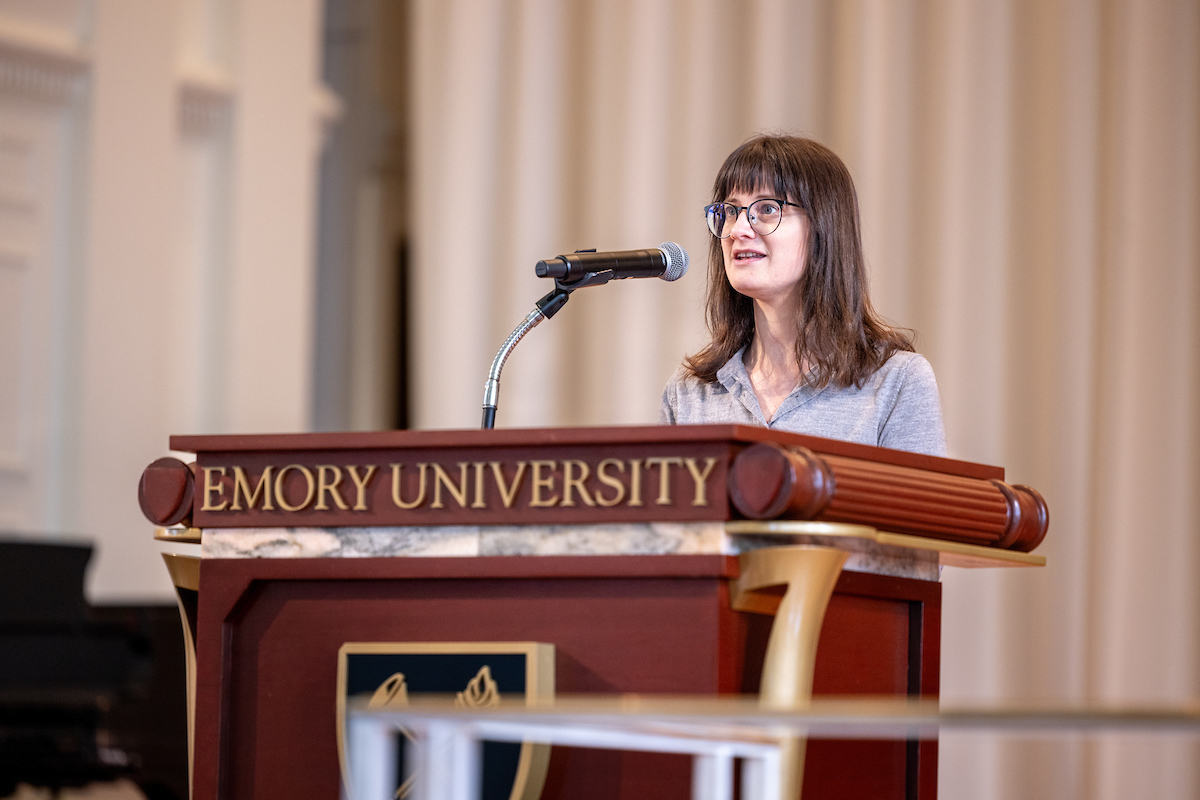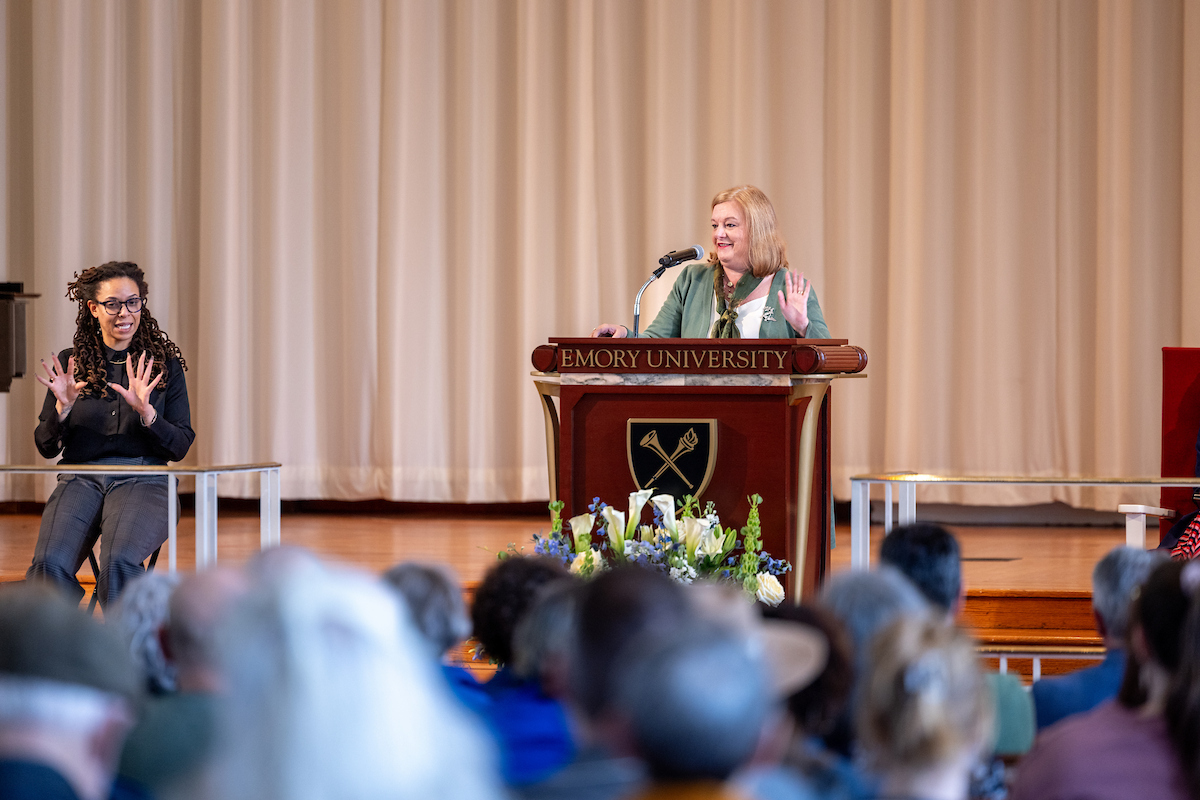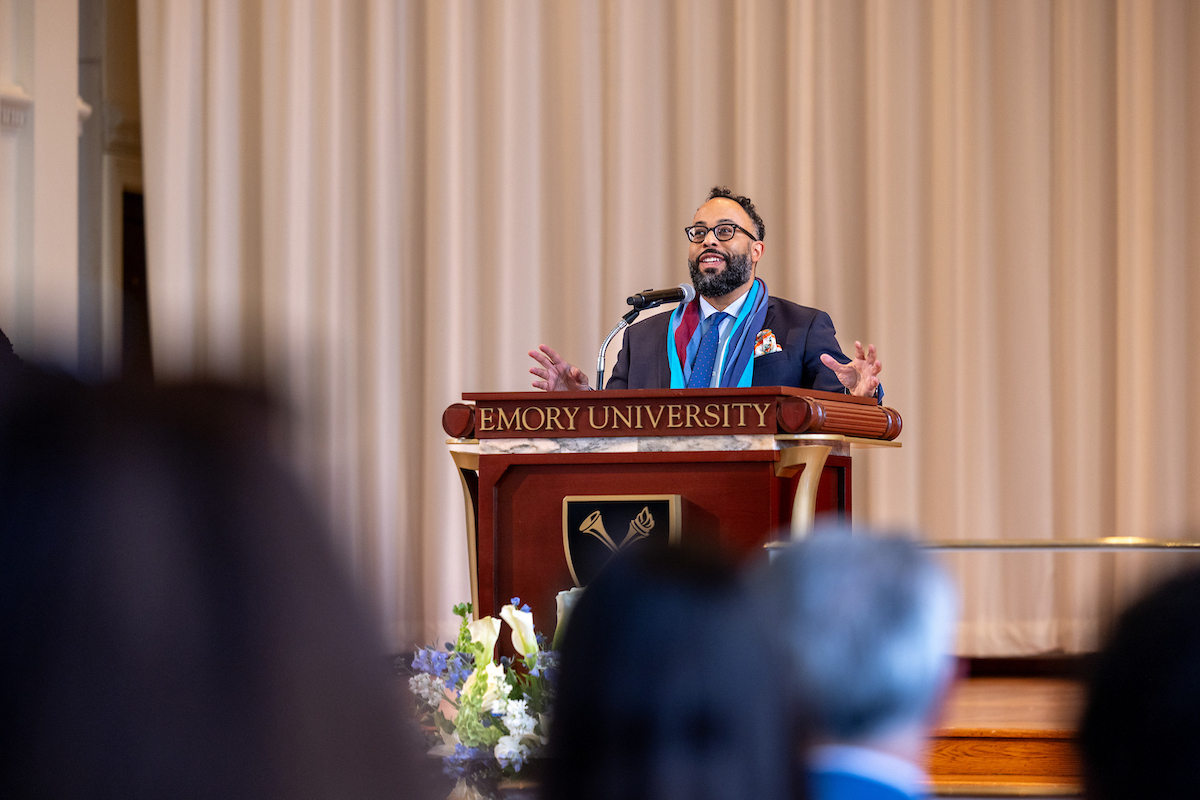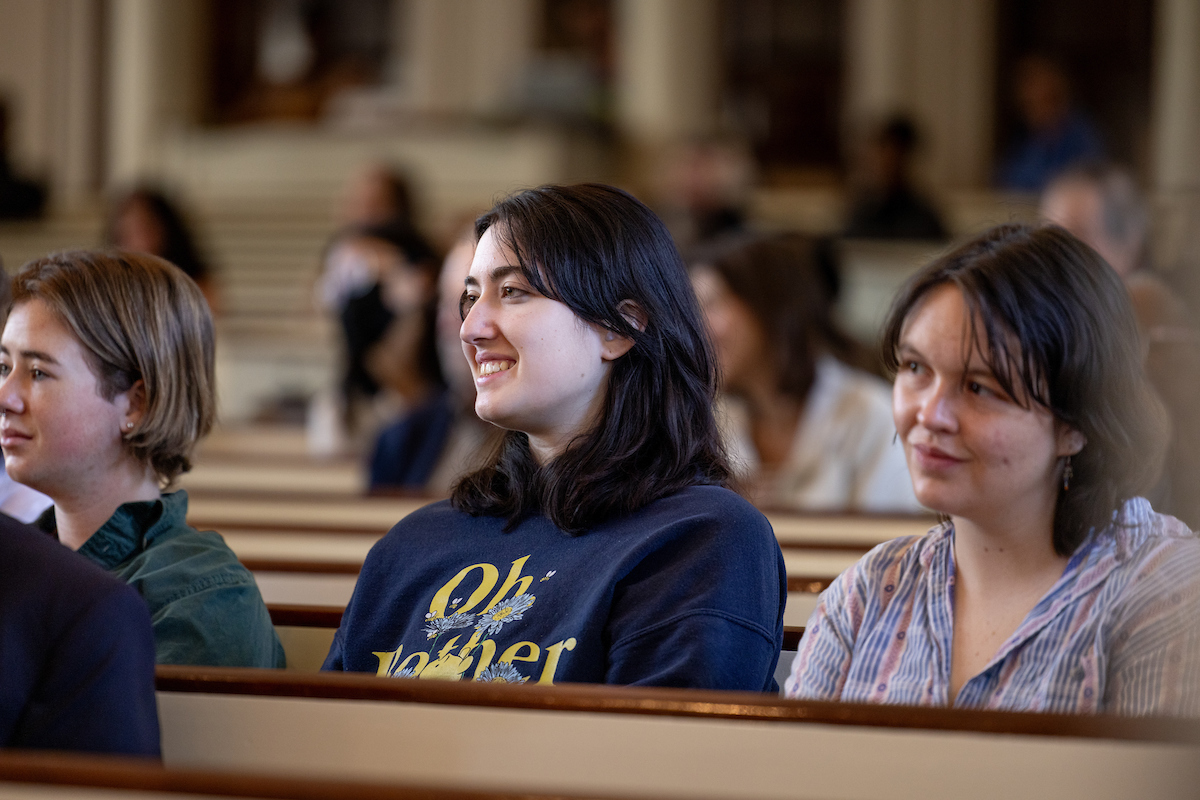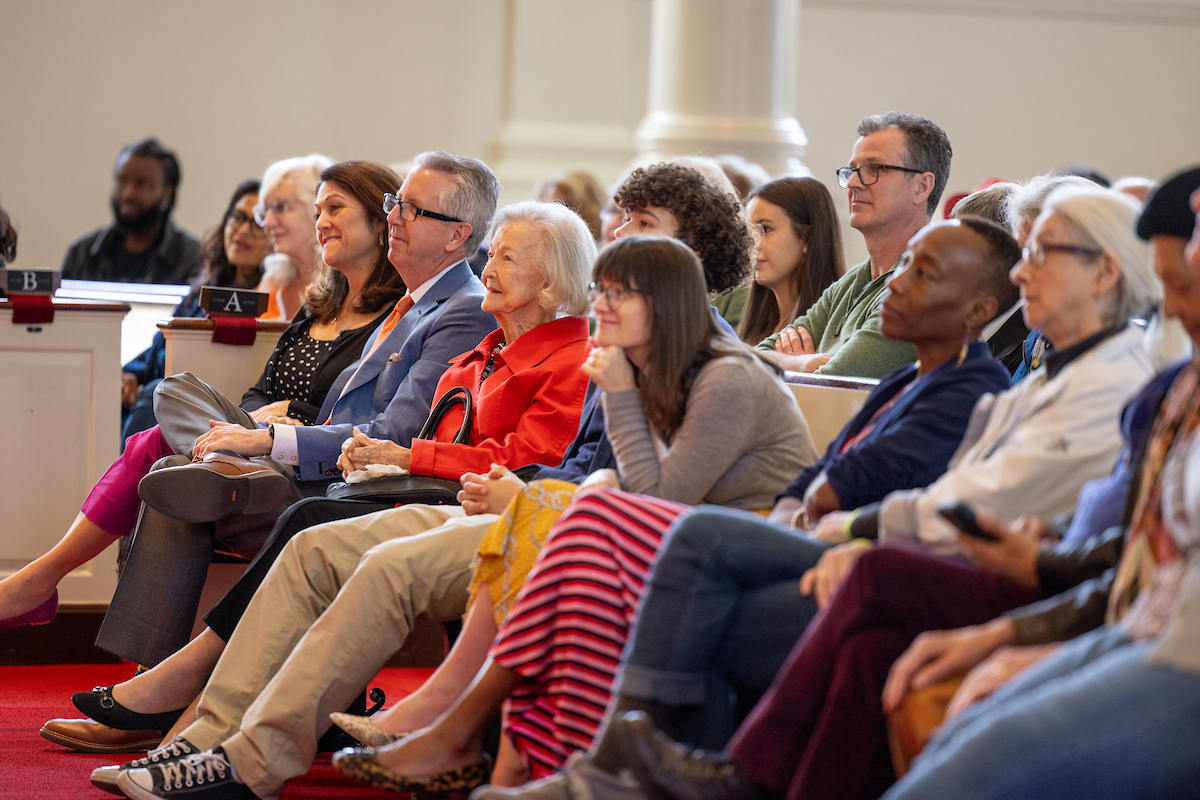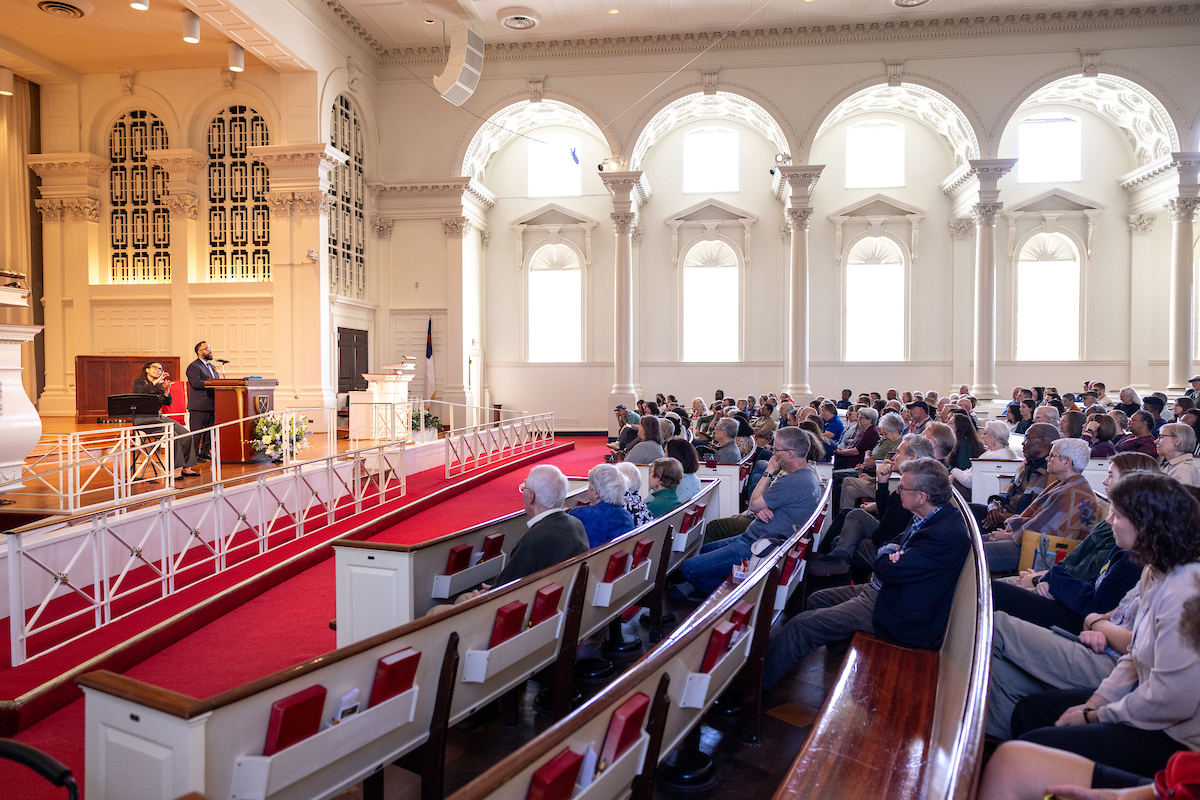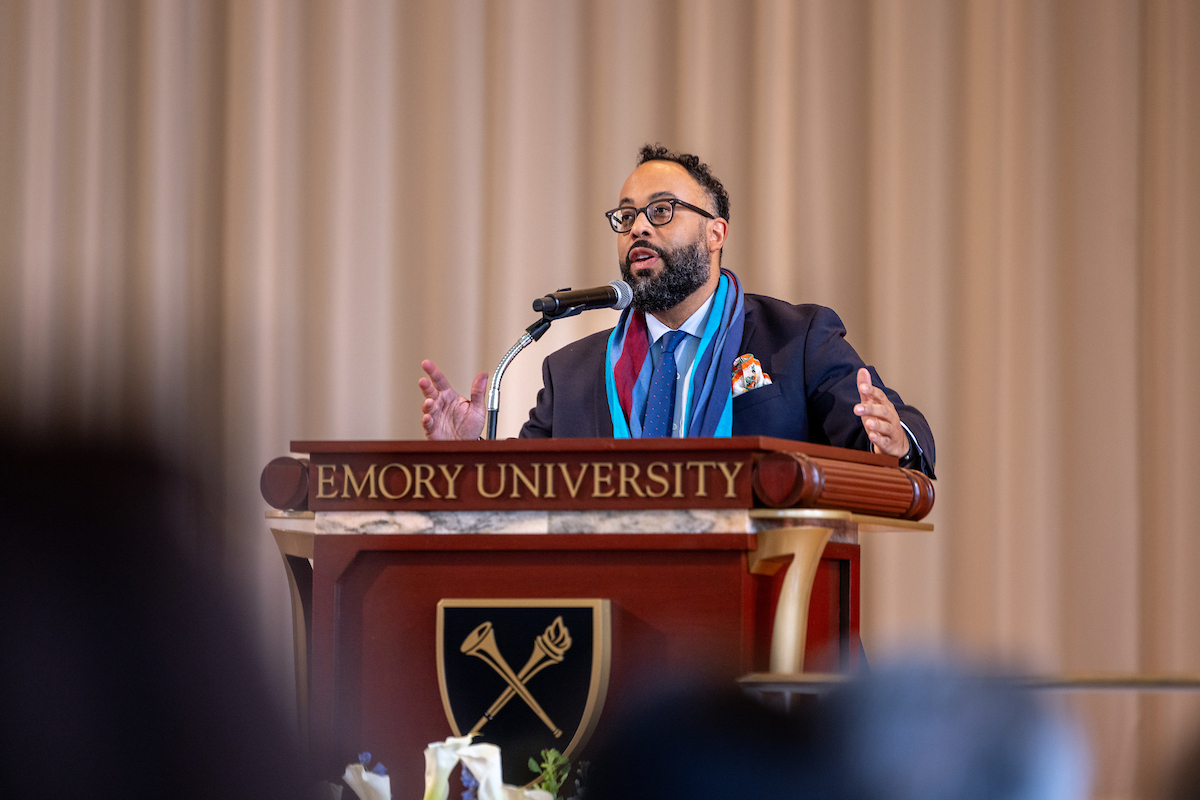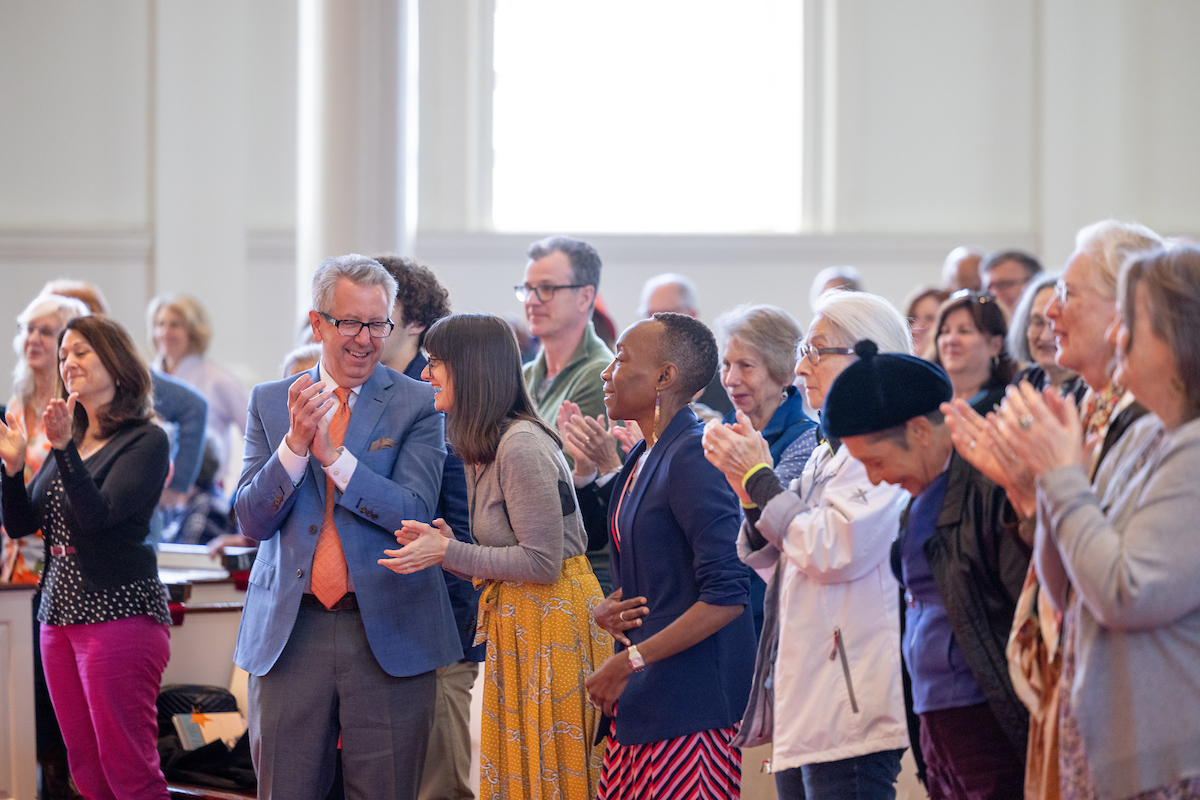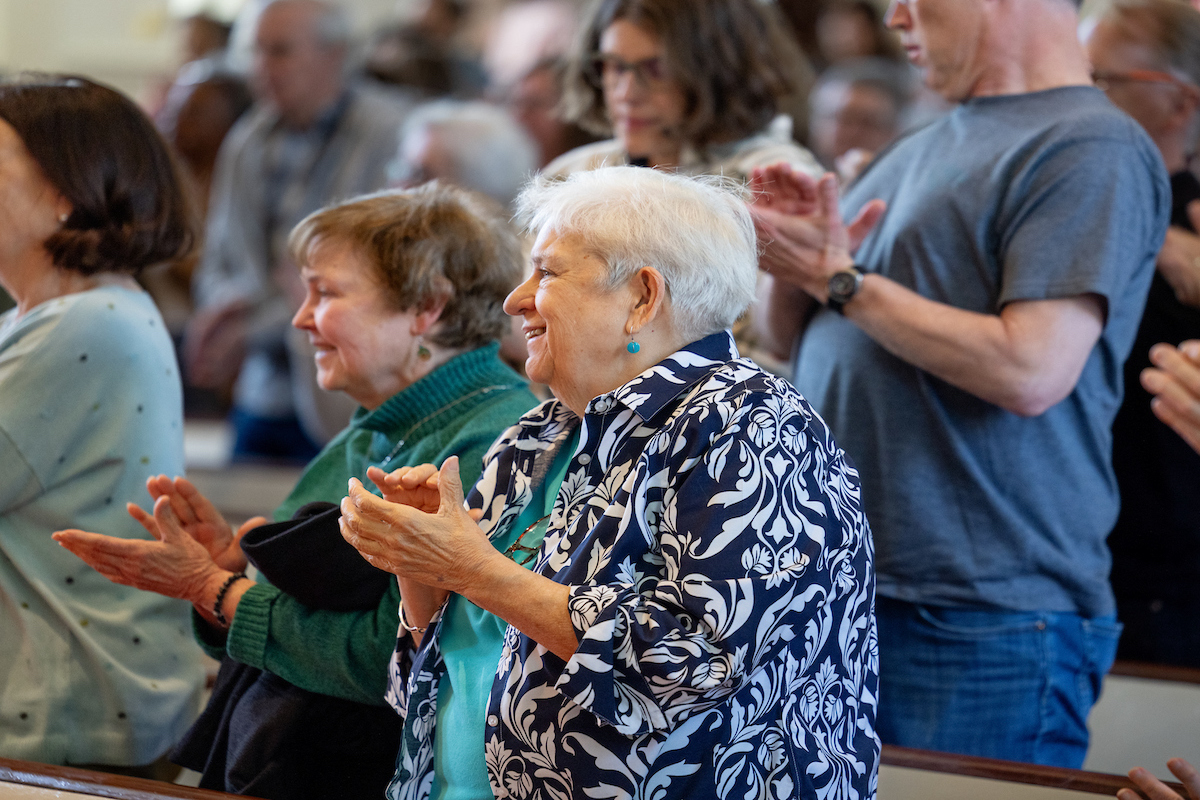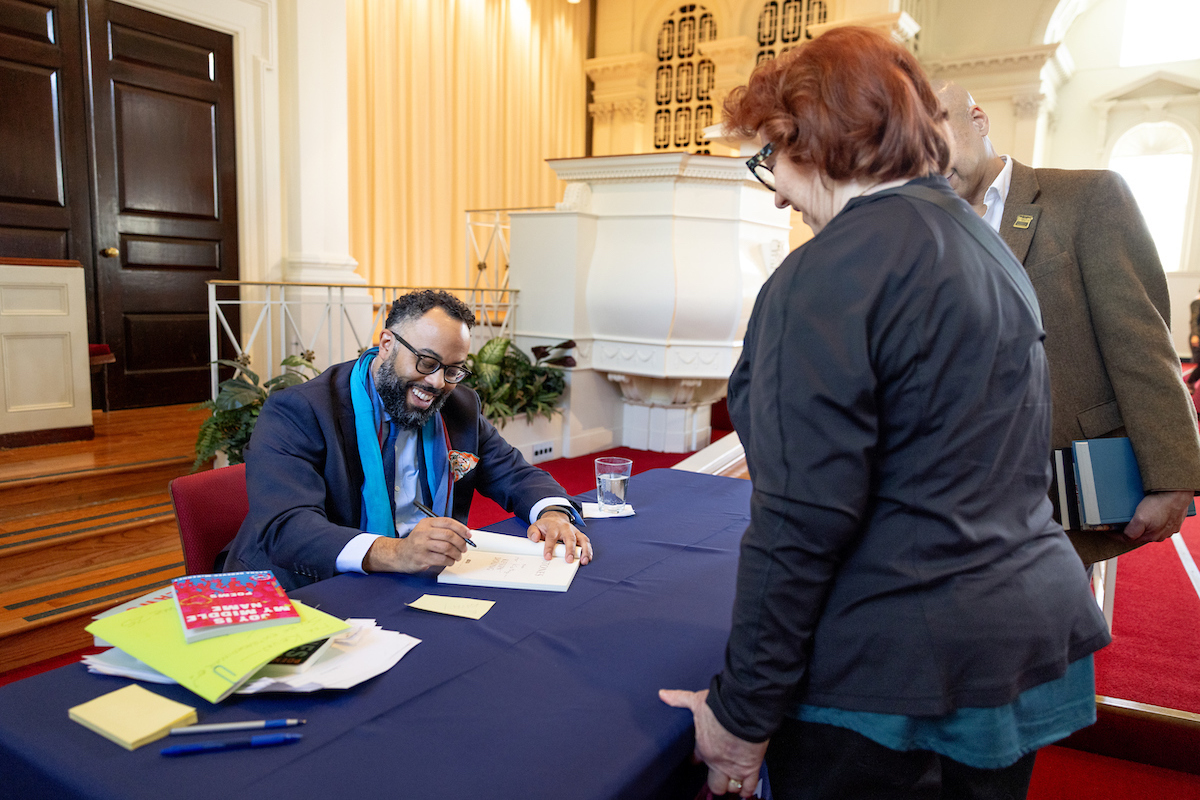In a review of Kevin Young’s 2018 collection “Brown,” the New York Times wrote that “keeping up with Kevin Young is like trying to keep up with Bob Dylan or Prince in their primes. Even the bootlegs have bootlegs.”
Emory audiences didn’t have to settle for bootlegs on Friday, March 21, and Saturday, March 22, when the influential poet and former University Distinguished Professor shared his work as special guest poet at the 25th annual 12th Night Revel and the 20th annual Raymond Danowski Poetry Library Reading Series.
Young, poetry editor at The New Yorker, served as the Atticus Haygood Professor of English and Creative Writing at Emory and curator of Emory’s Raymond Danowski Poetry Library from 2005-16.
He’s the author of 12 books of poetry, including “Stones,” “Brown” and “Book of Hours,” as well as “Bunk: The Rise of Hoaxes, Humbug, Plagiarists, Phonies, Post-Facts and Fake News,” a work of nonfiction. Another volume of poetry, “Night Watch,” is expected later this year. Young has also edited ten books, most recently, “A Century of Poetry in the New Yorker, 1925-2005.”
12th Night Revel: A party for poetry
For 25 years, the Emory community has gathered for the 12th Night Revel, an evening dedicated to poetry and raising funds to support the Rose Library.
From the welcoming toast by Emory President Gregory L. Fenves to the concluding wish from Chief Reveler Rosemary Magee, this year’s event delighted in that history — and the inspirational and challenging words of generations of poets.
“Creating poetry is an act of courage, discovery and hope. And reading it together as we do tonight, nourished by the rhythm and weight of language, is an act of joy,” Fenves told attendees. “It reminds us of who we are, who we aspire to be and the power of our shared humanity.”
As the evening got underway at the Emory Conference Center Hotel, Ron Schuchard, Goodrich C. White Professor of English Emeritus, recalled the very first 12th Night Revel before sharing a lilting recitation of W.B. Yeats’ “Sailing to Byzantium.”
“I’m one of the really old guys who was here at the turn of the millennium for the first gathering of poetry lovers from every corner of Emory, to drink, dine, recite favorite poems (many from memory), meet old friends and alumni and enjoy some tall tales and high laughter,” he reflected.
While “we never imagined that it would become one of Emory's permanent traditions … every merry-making reveler here knows that ‘poetry’ is a slant rhyme for ‘party,’” he quipped. “The two work marvelously together.”
And throughout the night, they did. Attendees ate, drank and made merry, inspired by students, faculty, staff, alumni and other guests who stepped to the microphones to read favorite poems from a wide range of poets — Nikki Giovanni, Paul Laurence Dunbar, Maya Angelou, Ada Limón, Timothy Donelly, Ezra Pound, Sylvia Plath, John Milton, Ilya Kaminsky and Billy Collins, to name a few.
Keeping the faith
The Rose Library is known for its expansive collections, with focus areas in African American history and culture; political, cultural and social movements; rare books; Southern history; and literary and poetry collections.
The Rose’s literary holdings include the papers of writers, poets and critics; the records of publishers and presses; and rare books and manuscripts. Its collections offer particular strengths in Irish literature, modern poetry, African American writers, Georgia and Southern writers, counterculture and the Beats.
In addition to Young, another celebrated poet who has entrusted his archive to Emory was on hand to help mark the 12th Night Revel’s 25th anniversary. Richard Blanco became widely recognized after reading his poem “One Today” at the second inauguration of President Barack Obama and served as Emory’s 12th Night poet in 2019.
At this year’s event, he described how he chose Emory to house his papers based on the Rose’s commitment to being a “living” archive — available to researchers, students and the public — and shared his poem “My Father in English.”
Speakers’ stories also exemplified how Emory and the Rose Library have shaped their lives.
Magee, this year’s Chief Reveler, retired from Emory in 2018 after 40 years in a variety of roles, concluding with her tenure as director of the Rose Library — coming full circle from her first job at Emory, which was, as she recalled at 12th Night, “filing catalog cards as a graduate student in the basement in the lowest level of the library.”
Bettina Judd, acting associate professor of African American studies, introduced Young to the rapt audience, remembering how she first visited Emory while in graduate school to study in the Rose Library. Working on her dissertation, she was excited to get a first look at the papers of poet Lucille Clifton, whose archive is part of the Rose Library’s extensive poetry collection.
Before Young began reading, he reflected on his years as an Emory professor and Rose Library curator. “I was here for 12 years, and this is such a special place for me,” he said. “It's the place where I learned that archives aren’t just about books and paper, they’re really about people.”
Young opened and closed with his own poems, “Ode to Greens” and “Rapture.” In between, he treated revelers to a diverse selection of works by poets featured in the recently released “A Century of Poetry in The New Yorker: 1925-2025,” for which he served as editor.
Taking the stage one last time to bid the revelers farewell, Magee invoked the words of another former Emory professor and 12th Night poet — 19th U.S. Poet Laureate Natasha Trethewey — who has said that “poetry is a kind of faith.”
“Let’s keep the faith,” Magee said.
First Danowski poet re-takes the stage
It was fitting for Young, the inaugural poet for the Danowski Reading Series, to stand at the lectern at Glenn Memorial Auditorium for its 20th anniversary. The free public reading is traditionally held the day after the 12th Night Revel.
From 2005-16, Young curated Emory’s Raymond Danowski Poetry Library, a collection of rare and first editions of modern and contemporary poetry housed at the Stuart A. Rose Manuscript, Archives and Rare Book Library, now numbering 85,000 volumes.
“The collection was an effort by Raymond to collect every book of poetry published in the English language in the 20th century,” noted Valeda Dent, vice provost of libraries and museum, after welcoming the community to the free event. “Just think about that.”
Elizabeth Ott, associate university librarian for special collections and director of the Rose Library, described how the Danowski collection filled “four boxcar-sized shipping containers” when the items were donated in 2004.
“And it’s for that reason,” she said, “that I’m so pleased today that we're going to be celebrating poetry in an equally expansive way by welcoming to the stage Kevin Young, who has had such a distinguished career in the classroom, in the archive, as a poet, as an editor and always as an advocate for poetry’s capacious voice.”
Geraldine Higgins, associate professor of English and director of Irish studies, introduced Young with stories about a mutual beloved connection, the late Irish poet Seamus Heaney, who was Young’s professor at Harvard.
The Rose Library holds the largest collection of Heaney’s papers in the world. In 2013, at Young’s invitation, Heaney was the guest poet at that year’s 12th Night and Danowski Reading. Later that same year, Heaney passed away. The following year, Higgins curated “Seamus Heaney: The Music of What Happens,” a major exhibit at the Rose Library featuring his work and papers.
“Kevin said that Heaney’s poems showed him how to put your bucket down where you are,” said Higgins, “proving that you could write about your life, your family and your past, and that this could be noble and the stuff of poetry.”
Poems of loss and life
Family and the past were certainly themes in the poems that filled the next hour, as were death and its counterpart, life’s ordinary pleasures we later grieve. The memories of many who have passed were also palpable; Young dedicated the reading to Pellom McDaniels, the Rose Library’s former curator of African American collections who died in 2020.
Young began with “Aunties,” a poem from his book “Dear Darkness,” whose lines include the following, juxtaposing loss with that which we savor most:
there’s a way only taste right— if my late Great Aunt there’s no tomorrow |
Young then revealed that his aunt was being laid to rest that very day and went on to share his last memory of her from a visit to Louisiana.
“We were getting ready to leave, and she said, ‘Oh, are you coming over?’”
Young tried to beg off.
“And she said, ‘Oh, well, I made some gumbo,’ and I said, ‘I’ll be right over!’”
Over audience laughter, he continued, “It was worth every moment.”
Mentors and legacies
Young also reflected on the impact of Heaney.
“I learned from him, not just in class,” he said, but also “thinking about how poetry brought him all over the world and brought the world to him, and it did much the same for me.”
Young read “Elegy for Heaney,” from “Blue Laws,” which includes the following lines:
All my favorite poets whom I was lucky almost orphans, |
Young also shared poems from his 2021 collection, “Stones,” a book he dedicated to his son, Mac, who was in the audience.
The theme of life’s ephemeral yet enduring nature made an appearance in “Lilies,” which Young wrote about bringing his son to visit the grave of his namesake, Young’s father. The poem closes with these lines:
The lilies near your name |
Embracing life by letting go
Young closed with several poems from “Night Watch,” in which questions of mortality were never far from view.
But it was “Russet,” from “Stones,” that comprised a thesis statement for the reading, as wrestling with the inevitability of loss grants fresh gratitude for life’s fleeting glory.
I’m done being In love with in the trees, russet, on the cold ground. if you try— yellow. Let go. |
The audience gave Young a standing ovation before heading back out into the ephemeral green of a perfect spring afternoon.

